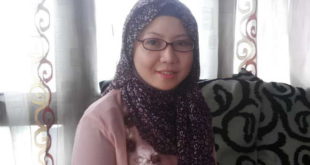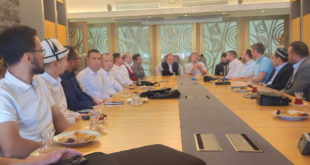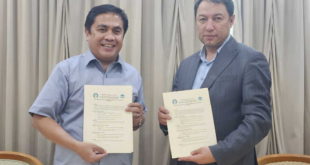The Ministry of Culture of the Republic of Uzbekistan, with the assistance of the Embassy of our country in the United Kingdom, in cooperation with the British Museum, is working to identify and return illegally seized exhibits, reports IA “Dunyo” correspondent.
According to Dr Hartwig Fischer, the Director of the British Museum, over the past decade, the British Museum helped to return more than 2,500 historical items to Iraq, Afghanistan, Uzbekistan and other countries. For example, in 2017 the British Museum assisted in the identification and successful repatriation of the stolen tile from the Chashmai-Ayub mausoleum in Bukhara. After the investigation by the law enforcement agencies of Uzbekistan, the criminals were brought to justice. Currently, this tile is placed at the State Art Museum of Uzbekistan in Tashkent.
Unfortunately, this January another case of smuggling the epigraphic glazed tiles was recorded at London Heathrow Airport. The enclosed documents declared that they were just copies purchased in Sharjah for 315 dirhams and intended for sale. The tiles were seized by the UK Border Force officers and they contacted the British Museum to clarify their real age and country of origin.
Despite the quarantine status of COVID-19, the British Museum has organized a consultative meeting with scientists from seven countries. After the mutual expansion, it was discovered that the armies date back to the late 13th-mid-14th centuries and may belong to the Shahi-Zinda monument in Samarkand.
When relevant scientific evidence was presented, the importers of troops into the United Kingdom renounced the right of ownership. Historical artefacts have been donated to the British Museum for repatriation to Uzbekistan.
During the works in 2004, a large number of fragments of architectural decor were found; bоth from buildings that previously existed in the complex, and from the preserved monumental structures. They were given to the funds of the Institute of Archeological Research of the Academy of Sciences of Uzbekistan, the Samarkand State Historical-Architectural and Art Museum-Reserve, the Museum of History of Samarkand.
After establishing these facts, the tile importer to the UK did not claim ownership right. The tiles were confiscated and transferred to the British Museum for subsequent repatriation to Uzbekistan.
Despite the quarantine measures, after receiving an official notification the Department of Cultural Heritage at Ministry of Culture of Uzbekistan in collaboration with the local scientists has started a research to study the origins of these tiles from specific sites. The working group visited Samarkand to identify the monuments, to which the tiles may belong. In the course of the studies, the stylistic closeness of the tiles to the architectural decor of the mausoleum of Khoja Ahmed (second half of the 14th century), the unknown mausoleum (1360/61) was revealed, but the complete coincidence of the fragments of decor from architectural monuments with the tiles has not been established yet. Currently, work is in progress to identify the belonging of the tiles to a specific architectural monument.
The Ministry of Culture of the Republic of Uzbekistan expresses its sincere gratitude to the British Museum for their work, in particular to the Director of the Museum Dr Hartwig Fischer, Senior Curator and Archaeologist of the Department of the Middle East Dr. St John Simpson, and other scientists. We will continue to strengthen our collaboration with the British Museum and UK law enforcement agencies to fight the illegal trade in artefacts.
The Ministry of Culture has kindly agreed to exhibit the tiles at the British Museum in December 2020. Recently, the British Museum also signed a Memorandum with the Culture and Arts Development Fund under the Ministry of Culture to cooperate in identifying and advising on stolen or trafficked artefacts from Uzbekistan.
The Ministry of Culture expresses special gratitude to the Embassy of the Republic of Uzbekistan in London for assistance in strengthening the cooperation with the British Museum and organizing the repatriation of artefacts to their homeland.
 Imom Buxoriy xalqaro ilmiy-tadqiqot markazi bukhari.uz
Imom Buxoriy xalqaro ilmiy-tadqiqot markazi bukhari.uz












